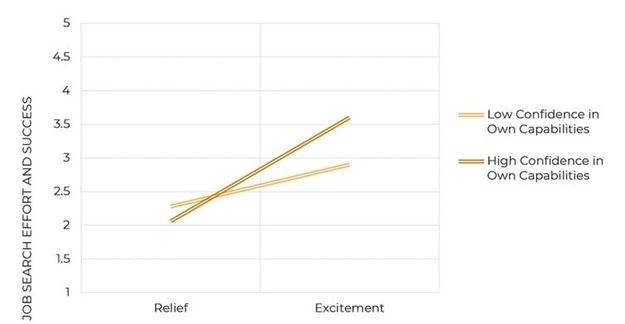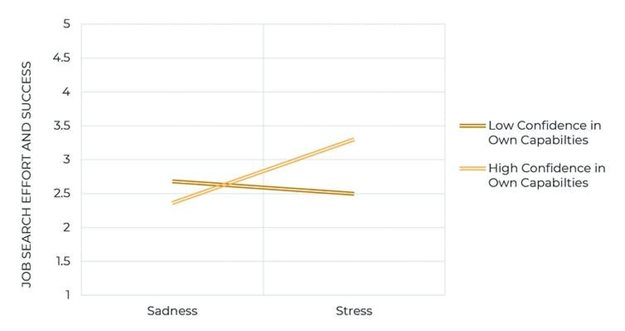Effective job search requires good emotion management

Throughout all these job search stages and experiences, people are likely to experience a wide range of emotions. Interestingly, a June 2020 article published in Forbes suggests that most job seekers do not prepare well, if at all, for the emotional journey that is the job search, and that it can actually make or break one’s success in finding a job.
A 2020 study published in Human Resource Management found that not all emotions are the same in the way they influence job seekers’ effort and success as they navigate their job search. They also found that not everyone reacts the same way to these emotional experiences and turns them into success.
But how are emotions different? And how are people different in their reactions to these emotions?
Emotions are not all the same…
Emotions are critical across a wide range of situations, including searching for a job, and both understanding and managing them can go a long way.
At a basic level, emotions are positive or negative. Evidence shows that, in general, positive emotions tend to be provide better outcomes in job search than negative emotions.
What the authors found is that not all positive or negative emotions are the same. When people experienced excitement or stress (positive and negative emotions with high arousal) while job seeking, they were energised and motivated to work harder toward finding a job. In contrast, when they experienced relief or sadness (positive and negative emotions with low arousal), they lacked the energy, and ended up being less persistent in their job search. The authors also found that when job seekers exerted greater effort, as a consequence of experiencing excitement or stress, they obtained more job interviews and job offers.

Concretely, these findings suggest that people need to better understand the emotions they experience, as they navigate their job search, especially in terms of the level of arousal, and how emotions such as excitement and stress can positively influence their effort and success.
While emotions are key to one’s job search effort and success, the authors of this study found that there are also key aspects related to job seekers themselves that come into play in how they interpret and act upon these emotional experiences.
…and job seekers are also not all the same
In general, people have different opinions and beliefs about themselves, including in their capabilities and control over outcomes in their life. This relatively stable trait is called core self-evaluations. People who have high core self-evaluations tend to think positively of themselves and to be confident in their capabilities.
In this study, the authors found that only job seekers with high core self-evaluations interpreted and acted upon their experiences of high arousal emotions during their job search. Put differently, when job seekers experienced excitement or stress, only those who thought positively of themselves exerted greater effort, and in turn obtained greater success.

Concretely, the authors found that not only are emotions not all the same, but also people are different in how they react to experiences of excitement or stress as they go through different job search stages.
Understanding and managing one’s emotions to find a job
In conclusion, understanding and managing one’s emotions can lead to more effort and greater success in seeking employment.
Job seekers need to understand that, contrary to popular belief, not all positive emotions are beneficial, and not all negative emotions are detrimental. Although stress has traditionally been viewed as detrimental in the job search, it is important for job seekers to recognize that stress can spur one’s search for a job.
Although it is difficult for job seekers to fully control their emotions, it is important for them to understand that not all types of emotions have a similar influence on the unfolding of their job search. It is thus important for them to manage these emotional experiences, as they can be very beneficial to their job search success.
Finally, although core self-evaluations is a relatively stable trait, job seekers can increase their belief in their capabilities through formal training programmes, hands-on experience, and career counseling.
For the last few months, the Covid-19 crisis has disrupted the economy in an unprecedented manner and has led to more people being back on the job search and having to do it virtually from home. Now, more than ever, it is critical for job seekers to understand and manage their emotions in a way that will help them succeed, and to reinforce their beliefs in their own capabilities.
This article is republished from The Conversation under a Creative Commons license. Read the original article.![]()
Source: The Conversation Africa

The Conversation Africa is an independent source of news and views from the academic and research community. Its aim is to promote better understanding of current affairs and complex issues, and allow for a better quality of public discourse and conversation.
Go to: https://theconversation.com/africa







